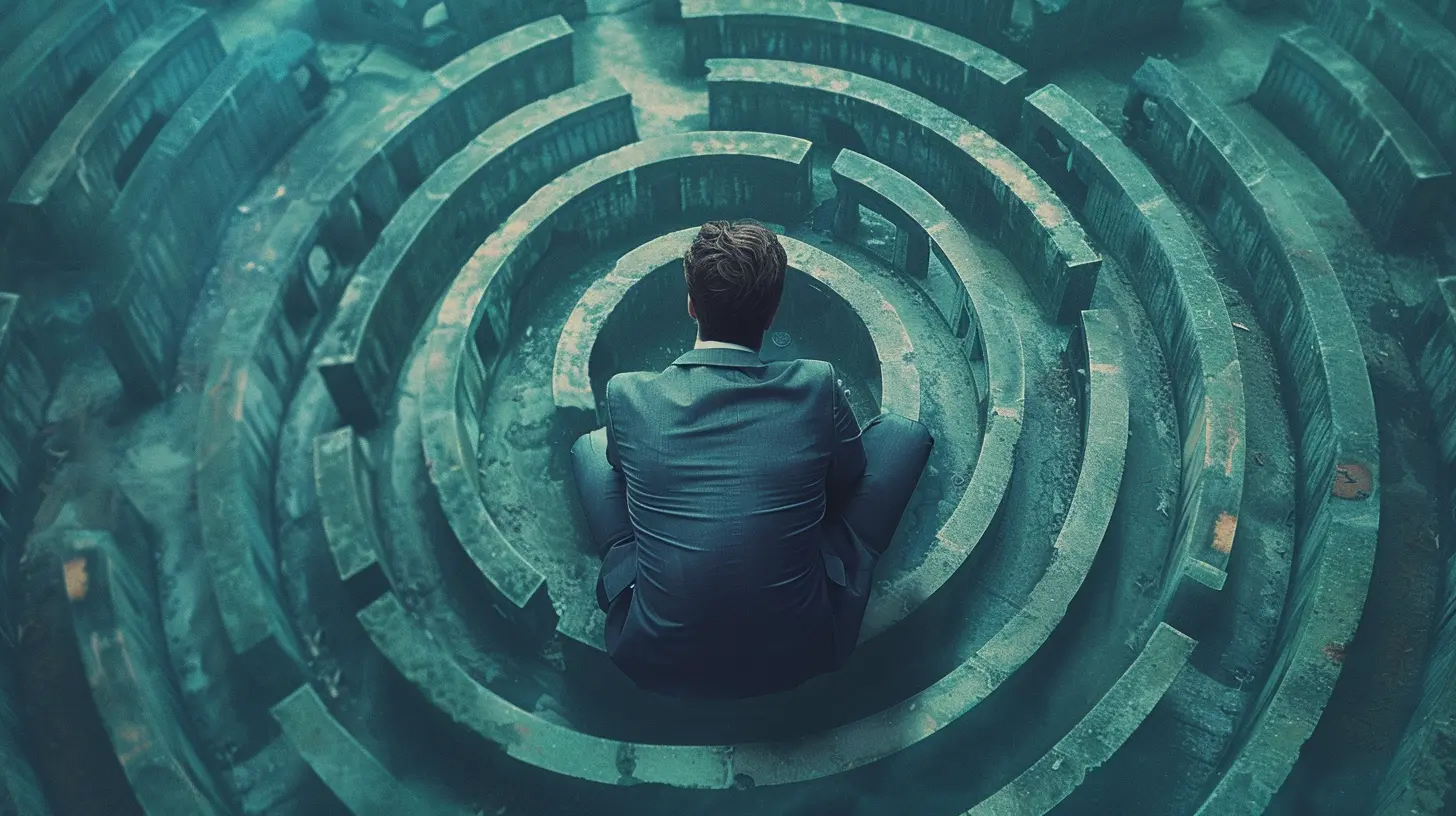Avoiding Analysis Paralysis: When Less Information is More
29 June 2025
Ever spent hours agonizing over a decision, going through every possible option, analyzing every detail—and still feeling completely stuck? That’s analysis paralysis in action. The more information we have, the harder it sometimes becomes to make a choice. Ironically, instead of helping, too much data can trap us in a cycle of overthinking and indecision.
In a world drowning in information, it’s crucial to understand when "less is more." So, how do we break free from this mental deadlock? Let’s dive deep into the causes of analysis paralysis, its impact, and practical ways to overcome it.

What is Analysis Paralysis?
Analysis paralysis happens when you're overwhelmed with so many options or pieces of information that you can’t make a decision. It’s like standing in front of 100 ice cream flavors—sounds fun, but it quickly turns stressful when you can’t decide which one to pick.At its core, this phenomenon stems from the fear of making the wrong choice. Instead of deciding, we keep gathering more data, convinced that additional information will lead to the "perfect" choice. Unfortunately, that pursuit of perfection often leads to… well, nothing at all.

Signs That You’re Stuck in Analysis Paralysis
How do you know if you’re overthinking instead of making progress? Here are some red flags:- You keep researching but never decide – Whether it’s buying a laptop, choosing a vacation spot, or picking a career path, you find yourself endlessly comparing options.
- Fear of making the "wrong" choice – The idea of regret paralyzes you, making it impossible to move forward.
- Second-guessing your decisions – Even after deciding, you continuously wonder if you made the right call.
- Feeling mentally exhausted – The more you analyze, the more drained and anxious you feel.
If any of these sound familiar, you might be caught in an overthinking loop. So, what’s causing this?

The Psychological Root of Analysis Paralysis
Several psychological factors contribute to analysis paralysis, including:1. The Paradox of Choice
Psychologist Barry Schwartz introduced this concept, arguing that while having options is good, too many choices can lead to anxiety and decision fatigue. When faced with too many possibilities, we either struggle to choose or regret the decision we eventually make.2. Fear of Failure
No one likes making mistakes, but some people fear failure so much that they avoid decisions altogether. The thought of getting it "wrong" keeps them stuck in endless analysis.3. Perfectionism
When perfectionists make decisions, they want the absolute best outcome. Instead of choosing something that’s "good enough," they seek the perfect choice—often at the cost of never deciding at all.4. Information Overload
The internet gives us access to an endless stream of data. While this is great, it also breeds overthinking. The more we research, the harder it becomes to filter what’s truly useful from what’s just noise.Now that we understand the problem, let's look at how to fix it.

Strategies to Overcome Analysis Paralysis
1. Set a Time Limit on Decisions
Ever noticed how quickly you can decide when put on the spot? That’s because time constraints force your brain to focus. Instead of endlessly debating, set a deadline for making the decision. Whether it’s 10 minutes for minor choices or a week for big ones, give yourself a clear timeframe.2. Embrace the "Good Enough" Mindset
Not every decision needs to be 100% perfect. Sometimes, "good enough" is more than enough. If a choice meets your needs, stop obsessing over whether there’s something slightly better out there.3. Limit Your Options
If having too many choices overwhelms you, reduce them. Instead of looking at 50 different cars, narrow it down to three. Instead of reading 20 product reviews, choose the top three and decide from there. Less information often leads to better, quicker decisions.4. Trust Your Gut
Your intuition exists for a reason. While logic and research are important, sometimes your initial instinct is the best guide. If one option keeps pulling you in a certain direction, pay attention to that feeling.5. Take Action, Even if It Means Making Mistakes
Indecision won’t prevent mistakes—it only delays them. The truth is, every choice carries risks, and no decision is ever foolproof. But action leads to progress, while inaction keeps you stuck. Accept that mistakes are part of growth and move forward.6. Use the "Two-Minute Rule"
If a decision can be made in two minutes or less, make it immediately. This technique, popularized by productivity expert David Allen, stops small decisions from piling up and consuming unnecessary mental energy.7. Seek Advice—But Not Too Much
Getting input from others can be helpful, but too many opinions can make things worse. Choose one or two trusted sources and avoid endless discussions with multiple people.8. Practice Making Fast, Small Decisions
Train yourself to decide quickly on minor things—what to eat, what to wear, where to go for coffee. This helps build confidence in your decision-making ability and makes bigger choices less stressful.Why “Less Is More” When It Comes to Information
Think about some of the most successful people in the world—they often simplify their choices to eliminate decision fatigue. Steve Jobs wore the same outfit every day. Mark Zuckerberg keeps his wardrobe minimalistic. Why? Because limiting trivial decisions frees up mental energy for more important ones.Information is valuable, but too much of it can be paralyzing. Instead of endlessly searching for more data, trust that you already have enough to make a well-informed decision.
Final Thoughts
Overthinking might feel like you're being productive, but in reality, it only keeps you stuck. The key to overcoming analysis paralysis is learning to act despite uncertainty. No decision will ever be 100% risk-free, and that's okay. Life moves forward only when you do.So, next time you find yourself trapped in an endless loop of "What ifs?"—pause, simplify, and choose. Because sometimes, the best decision is simply *making one.
all images in this post were generated using AI tools
Category:
Decision MakingAuthor:

Matilda Whitley
Discussion
rate this article
2 comments
Jett McNeely
Embrace simplicity; clarity enhances decision-making.
October 28, 2025 at 3:21 PM

Matilda Whitley
Thank you! Simplifying our information allows for clearer thoughts and quicker decisions, which is crucial in overcoming analysis paralysis.
Petra Davis
Great insights! Sometimes less really is more—overthinking can cloud judgment. Trusting intuition and simplifying choices can lead to better decision-making. Thanks for sharing!
July 7, 2025 at 3:38 AM

Matilda Whitley
Thank you! I'm glad you found the insights valuable. Simplifying decisions can truly enhance clarity and confidence.


